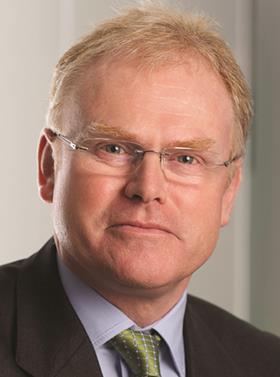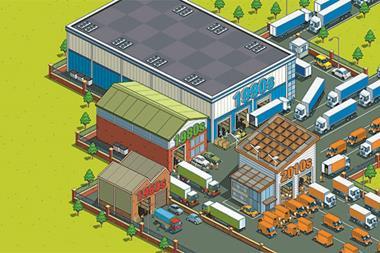The Bakery at Slough Trading Estate is not a place to fill up on pasties and rolls but instead a partnership with an innovative organisation that helps companies to solve their business problems.

The arrival of The Bakery is part of a wider trend that is seeing the industrial and logistics sector propelled to the cutting edge of business and property. With heightened economic volatility threatening to destabilise the business world, this is crucial. Those at the cutting edge in dynamic, changing sectors will continue to thrive whatever happens over the next five years. Those that are not will face far greater challenges.
First, The Bakery. What is it?
Founded by Andrew Humphries three years ago, The Bakery acts as a broker for big, established companies, matching them with innovative start-ups that have the talent and ideas to solve business problems swiftly and efficiently. Based near London’s Silicon Roundabout, it has so far specialised in the consumer goods, financial services, food and drink and retail sectors.
At the Slough Trading Estate, which SEGRO owns, it will assist businesses, connecting large multinationals with innovative entrepreneurs who can help solve their business challenges.
Many of The Bakery’s solutions have involved innovation through technology and that is a theme we are seeing in our wider business. DPD recently launched an app, Your DPD, that helps customers to set delivery preferences, track deliveries and avoid certain times of day. DPD is also reported to be launching DPD Precise, which gives customers a one-hour window for parcels to be delivered.
In Germany, Hermes will be the first parcel delivery company in Europe to test delivery by Zustellrobotern - electrically powered vehicles that can move at walking pace for up to 5km from a parcel depot.
And in Paris, XPO Logistics is working with Eurorail and another logistics specialist, Sogaris, to create a city centre shuttle service to deliver goods through a co-ordinated combination of river, rail and electric vehicles.

These innovations are all taking place because ecommerce is radically transforming the retail supply chain literally on a weekly basis.
The momentum is huge, and continues to underpin customer demand and, as a result, global investor demand for the logistics sector, transcending any potential short-term economic difficulties.
In one area, however, we have to sound a note of caution. All these innovations depend on land being available to create the urban logistics warehouses on the edges of cities from which millions of parcels are being delivered every day.
In London over the past 15 years, the sector has lost huge industrial sites at White City, Stratford and Nine Elms, and the speed at which this land is being lost is accelerating all the time.
Of course, land is needed for new housing, but the people living in those homes will need sustainable local jobs and crucially the infrastructure that supports daily life; urban logistics is fast becoming an integral part of the solution to the issue of population growth.
At a time of national, continental and global challenge, the logistics sector is at the cutting edge of innovation. It is crucial that it is allowed to flourish, allowing the populations of our great cities to also prosper in the ecommerce age.
Andy Gulliford is chief operating officer at SEGRO






























No comments yet